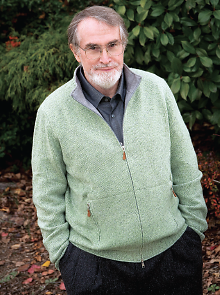More than 350,000 individuals with serious mental illness are now housed in U.S. jails and prisons, institutions that were never designed or staffed to manage that population.
“It is a situation that is grossly unfair to both the inmates and the corrections officials and should be the subject of public outrage and official action,” wrote psychiatrist E. Fuller Torrey, M.D., a member of the Board of Directors of the Treatment Advocacy Center in Arlington, Va., and six colleagues in an April report.
“The numbers are astounding, and the cost is unbelievable,” said Ira Burnim, J.D., legal director of the Bazelon Center for Mental Health Law, an advocacy organization in Washington, D.C. “It’s not a new problem. Why have we made so little progress on this front?”
The report draws on news reports, legal codes, and other sources to describe conditions in jails and prisons in 49 states and the District of Columbia. (Arkansas would not provide information for the survey, said the authors.)
“The report provides a state-by-state tally of a familiar problem and so contributes to a better understanding of what is going on,” said forensic psychiatrist Steven Hoge, M.D., chair of APA’s Council on Psychiatry and Law.
The present situation is the reverse of the one in the mid-1950s when more than a half million individuals with severe mental illness were housed in state hospitals.
“In 44 of the 50 states and the District of Columbia, a prison or jail in that state holds more individuals with serious mental illness than the largest remaining state psychiatric hospital,” wrote Torrey and colleagues. They noted that in 2012, 356,268 inmates with severe mental illness were housed in prisons and jails, compared with 35,000 patients in state psychiatric hospitals.
“The root cause of the problem is the continuing closure of state psychiatric hospitals and the failure of mental health officials to provide appropriate aftercare for the released patients,” they said.
However, more inpatient beds would not solve the problem, said Hoge. “A majority of psychiatrists would not be in favor of large-scale commitment,” he said. “Most people can live well enough in the community.”
Torrey offered several recommendations to address the problem, based on his view that “individuals with severe mental disorders who are in need of treatment belong in hospitals, not prisons and jails.”
As preventive measures, he wants to promote greater use of assisted outpatient treatment and diversion programs like crisis intervention teams and mental health courts to keep people with mental disorders in the community and out of jail.
He also favors more treatment for inmates, including the use of psychiatric medications over the prisoner’s objections, with procedural safeguards already in place in 31 states. That, too, is not the only difficulty in trying to treat prisoners.
“The problem is not only that people are untreated because they object to treatment, but that people who are on medications are often taken off those drugs when they are incarcerated,” said Burnim. “They go into crisis because their medications are taken away or are switched to other drugs because of formulary issues.”
Torrey and colleagues also suggested a model law to provide medication over inmates’ objections.
“The primary problem is not the law,” said Hoge. “It’s that existing systems are inadequately funded, inadequately developed, and inadequately implemented to allow us to appropriately medicate people involuntarily in many facilities.” ■
“The Treatment of Persons With Mental Illness in Prisons and Jails: A State Survey” can be accessed
here.


